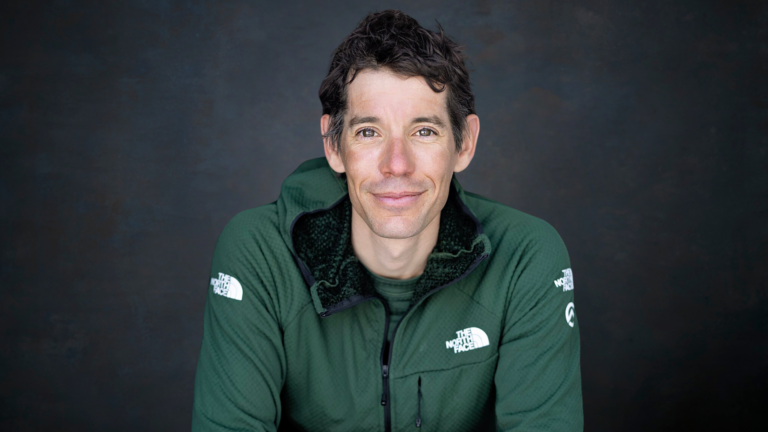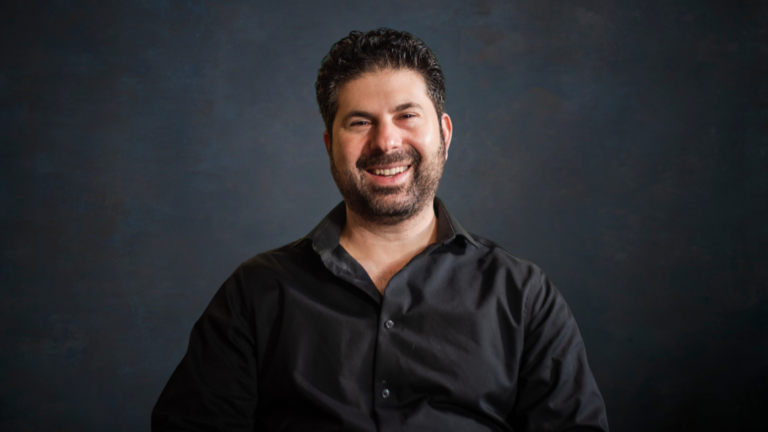This week’s conversation is with Josh Peck, an actor, comedian, author, Youtuber, and television superstar. Josh rose to near-instant fame when he starred for four seasons as the comedic center of Nickelodeon’s hit show Drake & Josh.
Since then, he has spent the last two decades establishing himself as one of Hollywood’s rising talents – he has starred in several feature films and is currently on set for other major projects, such as Christopher Nolan’s Oppenheimer alongside industry legends like Emily Blunt, Matt Damon, and Robert Downey Jr.
However, Josh’s quick rise to stardom didn’t come without consequence – in his new book, Happy People Are Annoying, Josh opens up for the first time about his coming of age journey under the spotlight and the struggles that came along with it.
That’s what this conversation is about – learning, growing, finding bright spots in the scary parts of life, and the life-changing freedom that comes on the other side of acceptance.
“The real struggle is between you and you. You are the fish you’re trying to catch. The good news and the bad news is that you’re the love of your life. You’re everything you’ve been searching for.”
In This Episode:
Why did he decide to write his book, Happy People are Annoying?
I say it in the book, but you can’t pick your hits. It’s why Billy Joel won’t play Uptown Girl anymore. You can’t pick the thing that breaks you through into the zeitgeist. People marry themselves to the first image that they fall in love with you as. So I knew that there was something deeper that I wanted to say more, that there had been a lot that I had obfuscated or omitted of my story because I felt the need to project the showbiz Josh to people. So I wanted it to be a bait and switch. You see this cover, you think, “I know that cheesy guy,” and then you open to page one and you’re like, “Oh, what did I just sign up for?”
Forward energy and confidence
I have this acting teacher and she talks a lot about forward energy. She hates it. She thinks it’s weak, there’s a pleading to it, a people pleasing, this leaning in. I’m guilty of it right now, but it’s just this idea that there’s something so powerful and strong about being on your heels, having your shoulders back, taking a breath. I love when stand-ups say they get to a point where they’re so comfortable in their act where they’re okay with the silence, but it roots down to something even at our most core level, which I think you’re kind of getting at, is that, “Am I enough? Am I, me at my base level without dressing it up, without all my special skills, all the flourishes, all the great stories that I’ve accrued throughout my life, am I enough in this situation, in this boardroom, at this meeting, or in front of 10,000 people?” And I think we all wrestled with that.
Imposter syndrome
My imposter syndrome became so severe that I allowed it to turn me into a fraud because it just perpetuated everything fraudulent about me and I completely deviated from anything that had ever worked, any of my natural sparkle. And in trying to project what I thought the world wanted, what I thought I wanted, I had one of my biggest face plants of record.
“Last night’s meal won’t keep you fed”
I love Aaron Sorkin’s quote: “Last night’s meal won’t keep you fed.” And a great lie I told myself for a very long time was, “I was once great.” There were times where I could summon the alchemy that it took to be great. So maybe if all the things align, this will happen too. Instead of realizing that acting, like everything else, even though it is creative and artistic, and does exist on a level that it’s not exactly ones and zeros, there are fundamentals, there’s preparation, you do the work required, and then you give it your best shot and hope that things align.
What does his self-talk sound like at his best?
It’s just very clear: [I say] “You couldn’t have done anymore. You’ve worked to the best of your ability and your capacity. And if something doesn’t work out from here on, it is outside of your control.”
His disease rests in his dis-ease
I had always used food to narcotize, to anesthetize my feelings. My brain wants me uncomfortable. You know what? I always say my disease rests in my dis-ease. My default settings put me in a place of discomfort. Now, I don’t think that that’s specific to people like me. I think that’s probably pretty human. I don’t mean to project, but I think there’s a lot of people who feel those things. I happen to have found these things originally with food and then with drugs and alcohol, where they forced me to a place where I had to deal with it. I had no choice but to deal with it because my life, whether it was that I was getting so overweight where it was becoming incredibly unhealthy, and then eventually the trappings that come with the other stuff.
Was there pressure to stay overweight?
It was said to me verbatim like, “You’re part of a very small class of performers who you fill this role, and yes, you’ll be relegated to probably two things, the bully or the best friend. But this is a very sort of… You’re part of a legacy here. There are people who have done this before you.” And they would compare me to Chris Farley or John Candy, but they weren’t comparing… Those guys are geniuses. They weren’t comparing my ability. They were just comparing my size, and also always failed to mention that they sadly had somewhat tragic endings. And so all those things combined, I certainly think people were like, “If you lose weight, you’re going to be auditioning against Jake Gyllenhaal.” I mean, not really, but you know what I mean? They’re like, “You’re going to enter the ranks of where there are thousands of guys who want one role. And right now, you’re against three.” But that never had any, I have to say, it never had… I remember deciding when I started to lose weight that like, “If I had to stay this size and be a movie star, I wouldn’t do it. And if I had to, if I could be thin and just be a normal person living, working a normal job, I would pick that instead.”
What he’s learned from the male figures in his life
I’ve been really lucky to have some male figures in my life. One of them is a big brother that I’ve had from the Jewish Big Brothers foundation since I was eight, but he’s been in my life for almost 30 years, Dan. He was the best man at my wedding. And also my father-in-law are… There are two men who they… It’s a good life as a result of good living that they are witness to their bad behavior that there… It’s not about karma anymore like, “I cannot live with impunity anymore because I’m awake.” And so it’s not about getting away with a lie or a cheat or a steal like, “Yeah, maybe no one’s going to find me guilty, but I know I’m witness to my misdeeds and I’m not willing to sacrifice my mental state, my level of contentment to get a little bit further faster.” And I think alphas got a bad name for a while and we started, well, embracing this idea of the beta male. I think that’s so wrong. I think a natural alpha are the ones who care about the group and lead with a quietness to them that you don’t even know they’re leading.
Share the wins, accept the losses
I remember asking my father-in-law for advice because he was a quarterback in the NFL for many years and is a true leader if he had any advice. And he said, “Just make sure that you make the wins everyone’s and the losses your own.” It was so simple, but it’s sickening when you get on a set and you see the way that people playcate to the number one on a call sheet. They just want to keep them happy. And if it’s like, you can be constantly spreading that out and not assigning blame, even if someone else messes up, it’s like, “Well, where can you pick up some of that to lighten the load on them?” Because they’re having a totally different experience to you.
After early succes, what is he now trying to solve?
I know two things. I want to do good work because anything worth doing is worth doing well. And I believe that the virtuous part of what I do has only occurred to me in the last couple years of that being a storyteller is probably a skill. The storyteller of the tribe is probably something that has occurred for thousands of years. And it allowed people to forget at night when they’re warming up by the fire, the 14 hours of hell that they probably just experienced in most cases. And now, as the storytellers, we allow for people, who live these real challenging lives, to lose themselves in these worlds that we create for half an hour, an hour, 90 minutes. And that’s a value. It’s not just about playing pretend and putting on a costume. So I want to do good work that gives people that kind of escape. And then with any money and influence that I’m able to procure, it’s like, “Where is the charitable arm of that?” I mean, I do it in smaller ways, but what’s that charitable arm where it’s either partnering up with someone or making that… I’m 35. I’m getting to that point where I really have to become clear of how do I pay this forward? How do I give it away? Because I’m really overpaid and my life is… I’ve been incredibly lucky and it’s time to help the people who haven’t been as lucky as me.
Never mastered, always working towards it
When this year started, I said, “Let me get back in acting class because I know this about myself, that I’m going to get rusty, and I’m going to rest on my laurels, and just think that last year was just a preview of more good to come.” So I get back in acting class and I’m doing my first scene, and my acting teacher watches it and she goes, “Did you consider this?” Or, “You kind of totally missed this.” And I just remember thinking, “Oh God, this thing I’ve been doing for 20 years, I still can’t master it. I still miss things.” And so it’s like this puzzle that I’m obsessed with and it never gets old. It’s this video game that I keep playing, and I love it, and I continue to just want to get one more, an inch further every time.
Are happy people really annoying?
I was always annoyed by people who seemed that they were at a default level of happy because I believed that happy was reserved for elite athletes and people who were generationally wealthy and attractive people and it just came naturally to them. And it was only through facing challenges and walking through them and acquiring new skills to deal with the next thing, and walking through challenges with grace that I found a little bit of that happiness that I’d always been seeking.



